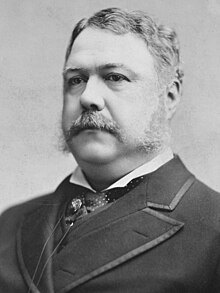 |
| (Photo Courtesy of www.avclub.com) | |
The release of "Marvel's 'The Avengers'" (a title within a title) signals the culmination of a long gestating plan to redefine the way big budget franchises are made and take Hollywood back a step toward something resembling the old studio system. Marvel, a comic book company, has been heavily involved in the movie business since 2000, when Brian Singer's excellent "X-Men" film relaunched the comic book genre after it crashed and burned throughout the 90's. The genre had seemed like it would never recover after 1997's "Batman and Robin." Singer proved there was still gold to be mined there, however, and began the "superhero" film craze that swept the U.S. in the early- and mid-aughts, displacing the anticipated kings of the decade like the Star Wars prequels, Mission: Impossible and James Bond films (the latter two having made more recent comebacks after a little superhero fatigue).
But a line can be drawn between 2007 and 2008. 2007 saw the abysmal "Spiderman 3" and the end of an era as America collectively realized such films no longer held any value. 2008 saw the release of "Iron Man" a film that eschewed the usual "secret identity" tropes and allowed itself to revel in its own absurdity while never becoming truly absurd. In this film we were introduced to "Tony Stark," the perfect, sarcastic, wisecracking, and slightly amoral antihero custom built for modern America. Yet over the course of the film he learns the value of honor and courage and begins a transformation. Whether it was the fun, light tone, or the action, or the superb performance from Robert Downey Jr., America embraced the film without reservation, making it a bona fide hit.
Marvel must have anticipated this success, because they decided to include a post credit teaser that changed how we perceive comic book films. I have been told that the character of Nick Fury was originally a white guy, but was redesigned in the 90s to a template based on Samuel L. Jackson. So it was fitting to have Jackson play the character at the end of the film and to have him utter two words that would send comic book lovers into a tizzy: "Avengers Initiative."
Even I, ignorant of all Marvel comics and their back-story, knew that "The Avengers" was a group of super heroes, somewhat like the Justice League, and as I heard more I realized that it was made of all the superheroes that I assumed would never get modern movies. "Hulk" had already flopped, and I never thought that "Captain America" or especially "Thor" would be source material for films that would be embraced by the American public. I was wrong.
"Thor" and "Captain America" were very successful at the box office, with Thor playing especially well overseas. Perhaps anticipating this success, Walt Disney Studios decided to gamble on Marvel's groundbreaking concept and purchased the company for $4 billion in 2009. Their vote of confidence should have been an early warning sign that film and the entertainment industry was about to change.
Both "Thor" and "Captain America" were directed by filmmakers of great pedigree, yet to the unit intimated viewer (such as myself) both were slightly unsatisfying. Having seen "The Avengers," I went back and rewatched both films as well as Iron Man 2, and I realized that all my problems with the films had disappeared. In an odd way, starting with Iron Man 2, Marvel had been producing the prequels first. This meant that each film was slightly unsatisfying on its own, but it was as if they knew that once "The Avengers" had been released, the entire tapestry would make sense.
This sort of continuous storytelling has never been attempted before on screen. In the space of 4 years, Marvel has released and connected 6 films in continuity with each other. Few great franchises can claim this. It took Star Wars over 30 years, Star Trek 12, and most other franchises have been content with trilogies. But audiences love continuity in their media. Perhaps it compensates for the lack of real connection in our modern lives that we feel a need and desire to connect with and follow the lives of fictional characters.
Nonetheless, the Avengers and the series of films that spawned them have rejuvenated comic book films and ensured their survival into the next decade in several ways. They have transformed a genre known for repetitive hijinks into a science-fiction heavy epic that coincides along with our own history and reality (Captain America is a great example of this). They have created larger than life heroes who don't require secret identities or glasses or strange afflictions to exist in our world; regular characters simply accept the existence of giant green monitors or Asgard or super soldiers. Tony Stark ended the war on terror. By watching normal people on screen accept this, it allows us to accept it too.
But what really sells it and draws us in is the length and breadth of the material. Christopher Nolan created an immersive Batman series in 2005, and 7 years later we await installment 3. Marvel produced 6 movies in 4 years. None of which are anywhere near the masterpieces of Nolan, yet equally as successful and engaging. In a time when franchise films get harder and harder to produce, and release dates farther apart (a four year wait between sequels used to be an aberration; now it is an accepted necessity as filmmakers expect time to produce other films in the interim), it is refreshing to get a high quality series from a diverse pool of talent getting released at regular intervals. Perhaps the secret of getting people back to the movies again in a world of instant gratification is to make movies faster. We make them bigger, flashier, edgier, but we are making them slower. Technology should allow films to be made faster and cheaper. There is also a dearth of "accepted" filmmaking talent, created by the slowing pace of film production.
Filmed entertainment is here to stay; but it doesn't have to stay stale. "The Avengers Initiative" (what I'll call Marvel's great experiment), is a bold move that aims to challenge the status quo (casting largely b-list actors and making them stars is something that hasn't really been done since the 1970's) and promises great things for the future of the medium.
Note: you can read Jeremiah's
review of The Avengers here.
Click here for more movie reviews.








